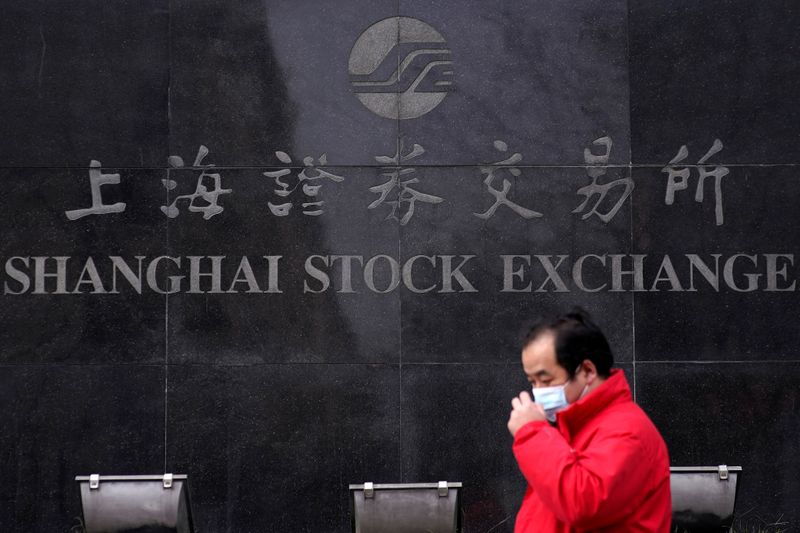This post was originally published on this site

Investing.com– Most Asian stock markets rose on Wednesday following a strong lead-in from Wall Street, with Chinese indexes rising sharply as investors looked to more stimulus measures to boost economic growth.
China’s Shanghai Shenzhen CSI 300 bluechip index added 0.5%, while the Shanghai Composite index rose 0.2%. China announced a slew of stimulus measures on Tuesday, including increased debt issuances and infrastructure spending, to support economic growth.
The bluechip index was propped up by gains in major real estate stocks, on the prospect of increased infrastructure development. Beijing is reportedly also considering more debt guarantees to support the property sector.
Japan’s Nikkei 225 was the best performing bourse in Asia, up 0.8% even as data showed the country’s trade deficit widened in July. But easing fuel and food prices may trigger a reversal in the trend later this year.
Hong Kong’s Hang Seng index rose 0.5%. But tech heavyweight Tencent Holdings Ltd (HK:0700) fell 0.9%. The internet giant is widely expected to report a drop in its second quarter earnings later today.
Taiwan stocks added 0.2%, while Malaysia’s benchmark index rose 0.5%. Sentiment towards equities was boosted by a strong overnight session on Wall Street.
Wall Street indexes ended higher on the back of strong earnings from major retailers Walmart (NYSE:WMT) and Home Depot (NYSE:HD), which indicated some strength in U.S. consumer spending- a major driver of economic growth.
Focus now turns to the upcoming minutes of the Federal Reserve’s July meeting, for more cues on monetary policy. Softer-than-expected inflation data last week saw traders toning down their expectations of another steep interest rate hike in September.
But Fed officials have reiterated that the bank will keep raising rates until U.S. inflation comes within its target range.
Australian stocks lagged their peers on Wednesday, trading sideways after data showed the country’s wages grew less than expected in the second quarter.
Singapore stocks were also muted after data showed the country’s trade surplus narrowed in July from the prior month.

